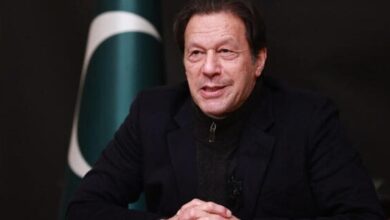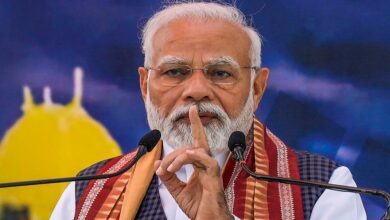Pakistan desires positive, constructive relationship with US: PM Kakar
However, he emphasised that he did not believe in “negative energies and expressed a desire for a long-term partnership with the United States.”

ISLAMABAD: Caretaker Prime Minister Anwaar-ul-Haq Kakar said on Saturday that Pakistan desired to establish a positive and constructive long-term partnership with the United States.
The interim PM expressed these views during an interactive session with the students of the University of Harvard held in Islamabad wherein he acknowledged that there are always agreements and disagreements between countries on various issues.
However, he emphasised that he did not believe in “negative energies and expressed a desire for a long-term partnership with the United States.”
While answering a question on the impact of war between then USSR and Afghanistan, the premier said that Pakistan played a huge and important role in the subsequent events of war in the region and towards global peace.
“Priorities by different governments in Pakistan kept on changing, but they did have visions and tried to visualise them,” he said.
Responding to a question, PM Kakarsaid that “non-completion of a government’s term was not undemocratic”.
“In the past 15 years, three elected parliaments have completed their terms,” Kakar opined.

The premier also addressed the issue of high expenditures and limited resources in Pakistan. He stated that democracy was the guarantor of the strength of the parliament. The interim PM praised the resilience of the Pakistani people in overcoming crises.
Talking about the Pakistani diaspora in the US, Karkar said that they were a success story itself. PM Kakar also spoke about the opportunities available to young people who travel abroad, whether to America, Europe or elsewhere.
‘This is not only a challenge but also an opportunity, as these individuals bring benefits to country through remittances,” he said and emphasised that Pakistani people living overseas work for their families.
He pointed out that this was not the first time young people had left the country and that it was normal for people to travel abroad every month and every year.
“It is not wrong for them to go to other countries in search of better opportunities,” he reiterated and stated that what was important to him was that these individuals were successful wherever they were, whether in their own country or elsewhere.
Karar acknowledged that unemployment was a problem, whether at home or abroad. However, he also noted that when individuals return to their country, they bring not only wealth but also professional skills.




